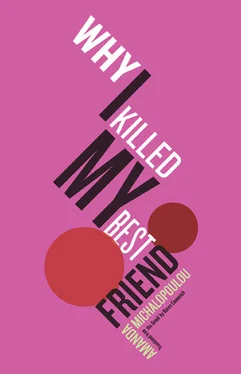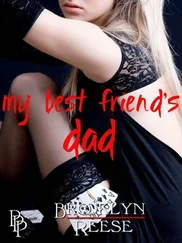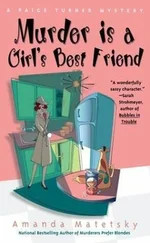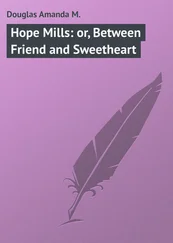Blond, skin and bones, medium height if you took off her boots. Straight hair, a wisp of bangs at her forehead. The hairclip is gone. And she dyed the white eyebrow.
It’s Anna. Former radical leftist of France. My former best friend.
•
“ So, that circle we drew with the shard of a broken pitcher . . Did you ever wonder if that line by Titos Patrikios might be to blame?”
“For what?”
“For the fact that we ended up throwing stones. .”
I’ve rehearsed this scene in my head thousands of times, imagined encounters from the most unlikely to the most banal: in the metro, at the post office, at a party, on a plane. On airplanes most of all, since there’s nowhere to escape unless you open the emergency hatch. Never in all those imaginings did I picture Anna, so real and yet so fake, striding into my art room dressed like a rock star, without even a hello or a prologue of any sort. She just hops up onto my desk, crosses her legs under her, lights a cigarette and starts to recite that poem by Patrikios — one of the old anthems of our friendship.
“Why didn’t you call me? Didn’t Daphne give you my card?” Her voice is deep and husky from years of smoking. It’s almost funny, such a gruff voice coming from such a tiny body — and if she weren’t wearing makeup, she’d probably have circles under her eyes. Her lashes seem thicker, but her gaze itself is unchanged. There’s something almost dramatic about her beauty, as if she’s been through a lot since we lost touch. Her plum-colored lipstick leaves a mark on the filter of her cigarette.
“I was busy,” I say.
“Busy?” She has an agitated look in her eye, the look of a person who wants to know everything.
“Who would’ve guessed we would meet again where we first met, in an elementary school classroom,” I say.
“Can’t you think of something a little more original, merde?”
“I leave the originality to you.”
Anna laughs and coughs at the same time. She enjoys making me mad.
“How about I be the boring one, and give you time to think up something clever to say? I’ll go back outside and come in again.” She jumps down off the desk, goes out into the hall and closes the door behind her, then knocks theatrically.
“Come in!” I call. I snatch a cigarette from her pack and light it without thinking twice.
“Hello, Maria. I don’t know if you remember me, but I’m your old friend, Anna. I heard you were my daughter’s art teacher.”
“Anna? Anna who?” I haven’t smoked in years. The first lungful brings a sweet dizziness.
“Anna Horn, of course!”
“I’m sorry, you must be mistaken. I never had a friend by that name.”
“Merde, globalization is so depressing.” She wrinkles her nose for emphasis.
I shrug. We’re sitting in a miserable coffee shop across the street from the school. It smells of plastic croissants. In those clothes, this attempt at solidarity doesn’t suit her. She looks more like she should be easing into a matching sports car, the kind Kayo and I used to overturn, and driving down to Kolonaki for an espresso.
“Do you want to go somewhere else?” I ask.
“I don’t care where we are, I care what we do there,” she says. “Are you going to go first or should I?”
I shrug again.
“Fine, I’ll start,” she says. “After that thing with the Albanian. .”
So she calls it “that thing,” too. I never gave it a name, either.
After “that thing,” she left for France. She packed her bags, went back to her father’s place. She spent two months crying and staring at the ceiling. It took her half an hour to drag herself from the bed to the bathroom. First I’ll stand up, she’d say, and then I’ll lean against the wall. All with the utmost gravity, as if she were conducting a military operation. At some point she started psychoanalysis. According to Anna, psychoanalysis means admitting you’ve got holes in your heart and in your head, and then plugging them up with whatever you find, so you can live at peace with yourself. She discovered she wanted a child. She met Malouhos, a Greek architect living in Paris who was twenty years her senior, and within a year they had Daphne, while I was still holed up on Aegina knitting hats for Stella. She abandoned politics altogether. She lived an entirely private life, within the four walls of a two-story apartment on Champs-Élysées with double-glazed windows and shag carpet. For five years she didn’t let the little girl out of her sight, except to go to her therapist, forty-five minutes three times a week. And after her appointment, straight home to the two-story apartment.
“A bourgeois life,” I say.
“The bourgeois life came later. I’m getting there.”
She would sit for hours at the window, Daphne in her arms. She looked out at the leaves on the trees, at the cars that slid soundlessly down the avenue, thanks to the double-glazed windows. At the passersby, bundled up in overcoats and scarves. She started to invent little stories for Daphne. “See that old man walking his dog? Well, the dog used to be the old man, but since he was always kicking his dog, a witch switched their places as punishment.” Daphne believed so deeply in Anna’s stories that she would bark at people and talk to dogs. And she wasn’t alone: everyone believed Anna’s stories. Everyone wanted to be like her. The little girl clung to her mother, taking shelter in a world of improvised fairytales. Hence the cave in her drawing: witch and witchlet joined forces in turning whatever they didn’t like into a frog, whatever they did like into a prince. At some point things got out of hand. The world of elves and magic wands almost turned them, too, into unearthly creatures. Her therapist kept hinting that Anna’s fairytales were turning reality into fantasy. That she had to sever the pathological umbilical cord that still tied her to her daughter. If he’d asked me, I could have told him that pathological umbilical cords are Anna’s specialty: she was always attaching herself to someone or something, to me, to her father, to this boy or that, to Marx, to feminism. And finally, to Daphne.
“My mom became a professional storyteller,” I say.
“Your mother? The same mother I know?”
Anna would never have thought my mother capable of anything more than knitting and filling the house with incense. So I exaggerate a bit as I describe her success, her Stories from Africa series, the prize for illustration she was awarded by some association of second-rate illustrators.
Anna nods as if bored, then returns to the period of her life when she finally let go of Daphne enough to entrust her to day care. She opened their two-story apartment to her architect husband’s connections in the business world, came to terms with the thought that her father would be rolling over in his grave if he hadn’t been cremated, started to accompany Malouhos to the apartments he was working on and to select works of art to match the interior design. In the end she decided to go and work at his firm.
She reacquainted herself with the social world, remembered the proper way to hold a champagne glass by its stem, got accustomed to entrusting her daughter to others’ embraces. The girl was confused by this sudden passage from asphyxiating love to indifference. That’s when the tantrums started, the shrieking and kicking. Anna decided it was time to make her peace with the past. The solution for Daphne’s tantrums was the Greek sun: the Mediterranean lifestyle, a house with a yard in the swank northern suburbs of Athens. She convinced her husband that they should move back to Greece and make a fresh start. Though it wasn’t actually all that fresh: for years Malouhos had been collaborating with major construction companies all over Europe, he has an iron in almost every fire around. He’s a one-man multinational, responsible for some of those hideous glass monstrosities on Kifisias Avenue. We’ve even referred to him indirectly in Exit , in a piece about the new style of luxury office buildings: The hothouses on Kifisias have constant climate control instead of windows you can open, the better to transform their workers into faithful reproductions of houseplants .
Читать дальше












